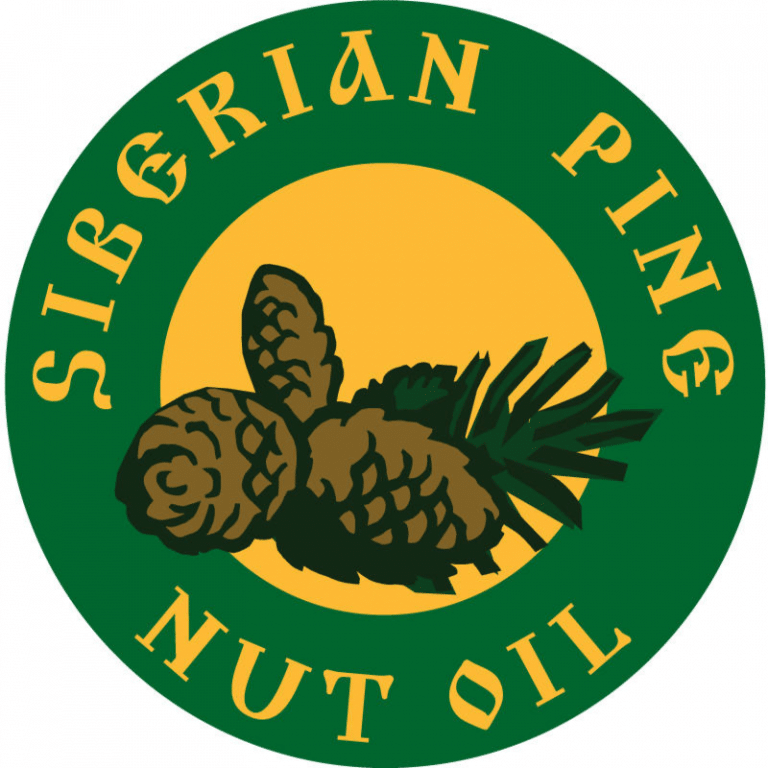Pine Nuts As A Source Of Natural Vitamins And Unsaturated Fatty Acids

Pine nuts have long been considered an outstanding source of natural vitamin complexes and fatty acids that are important for the body. Ripe pine nuts are easily assimilated by the body, possess high medicinal properties and are unusually rich in fat-soluble and water-soluble vitamins, trace elements, and macro elements. The nuts also contain unsaturated fatty acids, proteins and amino acids, which enables pine nut oil to be widely used in folk medicine for the treatment of various illnesses of the gastrointestinal tract, dermatological diseases, and to strengthen the immune system. Thanks to their vitaminized composition, pine nuts and the oil obtained from them possess high nutritional properties.
Various vitamin complexes are capable of supporting a person’s vital activities over a long period of time. Their important biological role involves participation in most metabolic processes and chemical reactions in the body. Pine nut is a unique product in terms of the presence of natural vitamins. It is a natural vitamin complex, not synthetic ones, that ensure they are effectively absorbed in the gastrointestinal tract and then distributed throughout the body.
Pine nuts are especially rich both in water-soluble vitamins — C (ascorbic acid), B1 (thiamine), B2 (riboflavin), B5 (pantothenic acid), B6 (pyridoxine), and B9 (folic acid) — as well as fat-soluble vitamins — A (retinol), E (tocopherol), K (phylloquinone), PP (nicotinic acid), and F (fatty acid complex).
Vitamin C and the B-group vitamins perform important functions in the course of practically all physiological processes, including the regulation of metabolism and the nutrition of nervous tissue.
Ascorbic acid eliminates free radicals, reduces the risk of the formation of cholesterol plaques, inhibits the formation of atypical (precancerous) cells, and strengthens the immune system.
The fuel value of 100 g of pine nuts is 673 calories, and its glycemic index is equal to 15 GI.
Without a doubt, a person’s basic organ is the brain. Vitamins B1, B2, and B9 are capable of ensuring that it works at full capacity and develops properly. The regular consumption of pine nuts rich in vitamins has a positive influence on mental abilities and the psycho-emotional state while also having the effect of toning up your brain and eliminating symptoms of depression and neurosis.
The content of vitamin E (tocopherol), which acts as a most powerful natural antioxidant, in 100 g of pine nuts is only slightly less than its recommended daily allowance. Pine nuts contain three times more vitamin E than coconut oil and five times more than olive oil. Vitamin E assists in lowering the blood cholesterol level and plays an indispensable role in all reproductive processes and their functioning. Tocopherol is especially important for pregnant women, children, and persons suffering from atherosclerosis and chronic pathologies of the liver and intestine.
Pine nuts and the oil obtained from them are unique products for which there is nothing similar. Pine nut oil is a source of vitamin F, a source that contains 90 mg of vitamin F in 100 grams of the product, which is three times more than in fish fat. Vitamin F is a collection of essential fatty acids, primarily unsaturated linolenic acid (21% in 100 g of the vitamin F complex) and linoleic acid. These two acids, which fall into the category of essential fatty acids, are necessary for the normal course of biochemical processes, but cannot be synthesized by the body and for that reason must absolutely be present in food.
The important vitamin PP (nicotinic acid) participates in the processes of releasing energy from carbohydrates and fats. It is essential for preventing the occurrence of migraines and cardiovascular illnesses, including hypertonia and diabetes mellitus. Just 100 g of pine nuts contains 24.6% of the daily dose of vitamin PP.
From the foregoing, it is obvious that vitamins in pine nuts are present in sufficient quantities to make up almost completely the daily dose of essential vitamins by taking 100 to 200 g of the product. However, together with the vitamins found in pine nuts are also minerals, which have a no less fundamental importance for the functioning of the human body.
Mineral composition of pine nuts
Minerals are chemical substances found everywhere in the earth’s core and the upper layers of the soil. Their role in the human body is significant, since they assist in the functioning of all organs.
Minerals are classified into inorganic trace elements and macro elements, which are necessary for the tissues of the human body, skeleton, and the synthesis of various enzymes and hormones.
Ripe pine nuts contain a large group of macro elements. It is these minerals that the body needs in large quantities: Ca (calcium), F (fluorine), K (potassium), Mg (magnesium), Na (sodium), P (phosphorous), S (sulfur), and Fe (iron). Trace elements are also widely found in the nuts; the basic ones are Mn (manganese), Si (silicon), I (iodine), Ag (silver), and others.
Pine nuts contain twelve times more magnesium (251 mg in 100 g of dried kernels) than broccoli; they contain twice as much iron (597 mg in 100 g of dried kernels) than bananas, and two and a half times more iron than in beef. The oil obtained from pressed pine nuts contains phosphatide phosphorus (575 mg in 100 g of dried kernels), which is very important for the body.
The manganese, iron, and phosphorus contained in pine nuts lower the load on the heart and improve the qualitative characteristics of the blood. Potassium is a direct regulator of the body’s water-salt balance, while sodium positively affects the functioning of the nervous system and mental abilities. Similar properties are also characteristic of phosphorus, which is also involved in strengthening the locomotor system. The sodium found in pine nuts normalizes the function of the kidneys and has a positive influence on the digestive process.
A lack of important trace elements in the body can lead to the drying and reddening of the skin. Cosmetics that contain pine nut oil have a beneficial effect on the skin, saturating it with natural vitamins and trace elements, maintaining the natural acid/alkaline balance, and making the skin resilient and velvety.
Pine nuts as a source of unsaturated fatty acids
Fatty acids participate significantly in the body’s metabolic and energy processes. The pine nut is an organic plant product, and the basic types of fatty acid in its composition are unsaturated fatty acids. Monounsaturated fatty acids are present in the pine nuts — oleic acid, classified as an omega-9 fatty acid — as are polyunsaturated fatty acids — linoleic and alpha-linoleic acids, known as omega-6 and omega-3.
Oleic acid makes up 25% of the total mass of fatty acids in pine nuts, linoleic acid makes up 44%, and linolenic acid makes up 21%. This ratio is practically optimal, and in combination with vitamins and minerals, fatty acids have a high physiological activity.
Unsaturated fatty acids are not synthesized in the human body, so pine nuts are one of the alternatives for supplying them.
The proper assimilation of polyunsaturated fatty acids requires that the natural antioxidant tocopherols be consumed in food. Antioxidant tocopherols inhibit the development of oxidation processes in tissues, increasing the stability of cell membranes and not allowing them to be harmed by physical or toxic means. Pine nuts contain 55 mg of alpha-tocopherol in 100 g of the product, which is sufficient for the normal oxidation processes of lipids.
Pine nut oil has a high content of omega-3 and omega-6 essential fatty acids, which increase the body’s resistance. Unsaturated fatty acids participate in the work of the immune system. In the case of a deficit of unsaturated fatty acids, immunity is lowered, and the body becomes more susceptible to various types of allergies. Pine nuts and their oil are indicated in dermatological disorders — the recommendation is to take them both internally and as masks for the face and affected areas of the skin.
Fatty acids combine with cholesterol in the intestine, thereby lowering its quantity, and therefore also reducing the harmful action of cholesterol in the body and preventing the development of atherosclerotic plaques and such illnesses as atherosclerosis.
Hence, the regular use of pine nuts, which are rich in unsaturated fatty acids, exerts positive effects on the human body — it increases the elasticity of the vessels, improves circulation in tissues, has an antioxidant effect, and stimulates the immune system.
Thus, pine nuts have the complete composition of biologically active substances necessary for the normal functioning of the body and are a natural vitamin-mineral complex that can replace any synthetic or processed from plants food supplements. The nuts are recommended for use in the diet of children, pregnant and lactating women, as well as athletes and all those who are committed to a healthy lifestyle.
These articles come directly from researchers and are passed on to everybody. siberianpinenutoil.org assumes no liability for any content in these articles. For Educational purposes only. This information has not been evaluated by the Food and Drug Administration. This information is not intended to diagnose, treat, cure, or prevent any disease.
